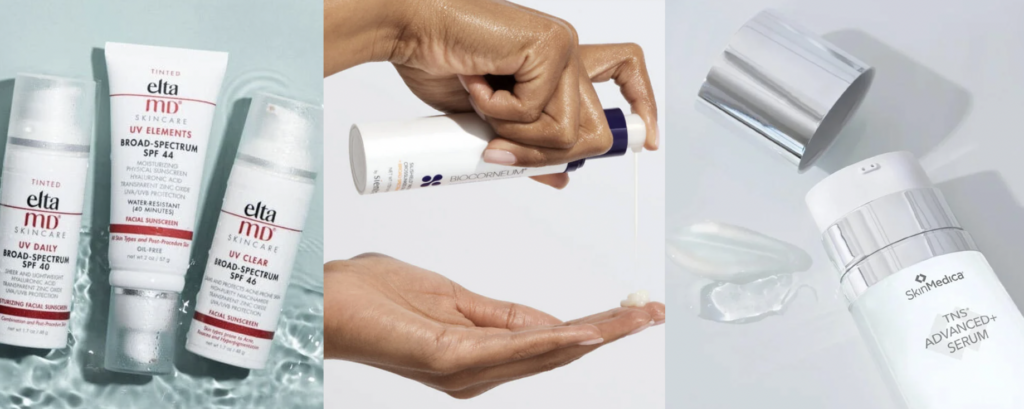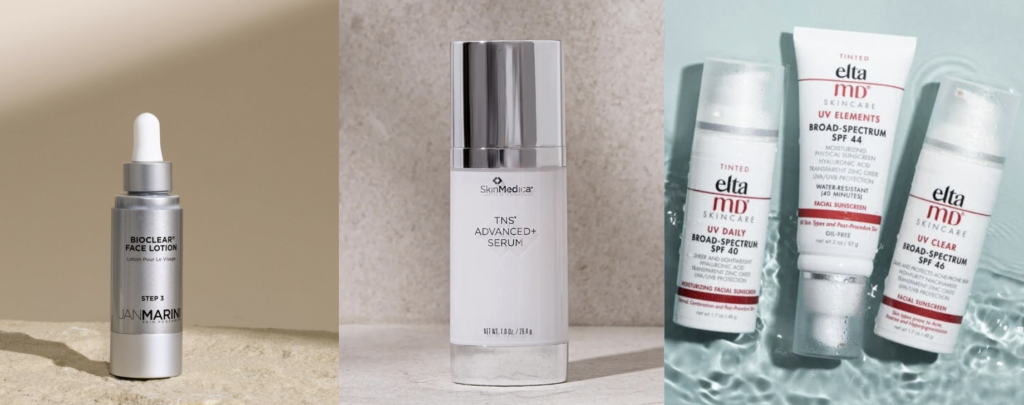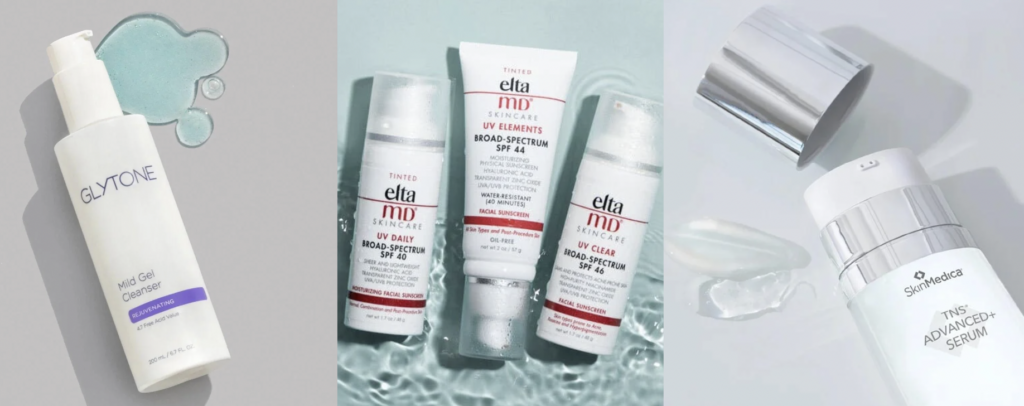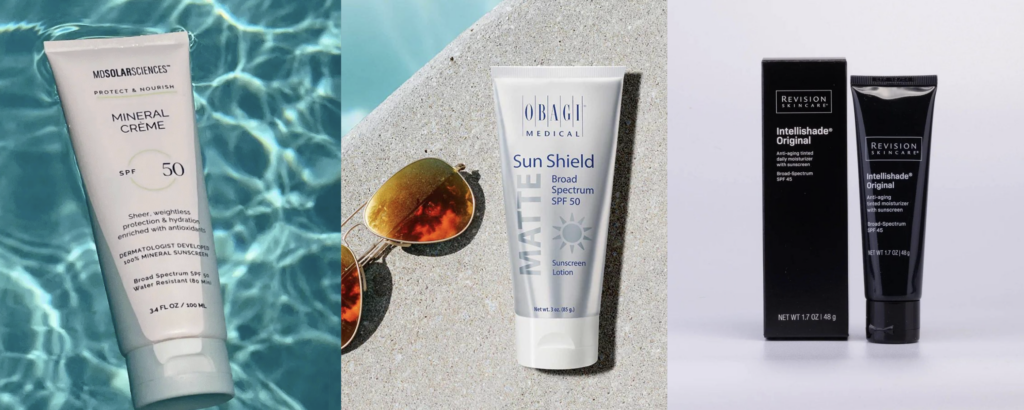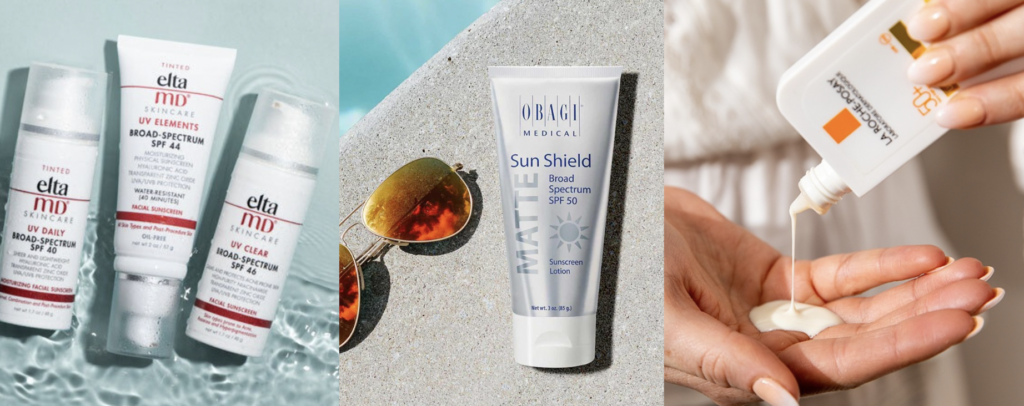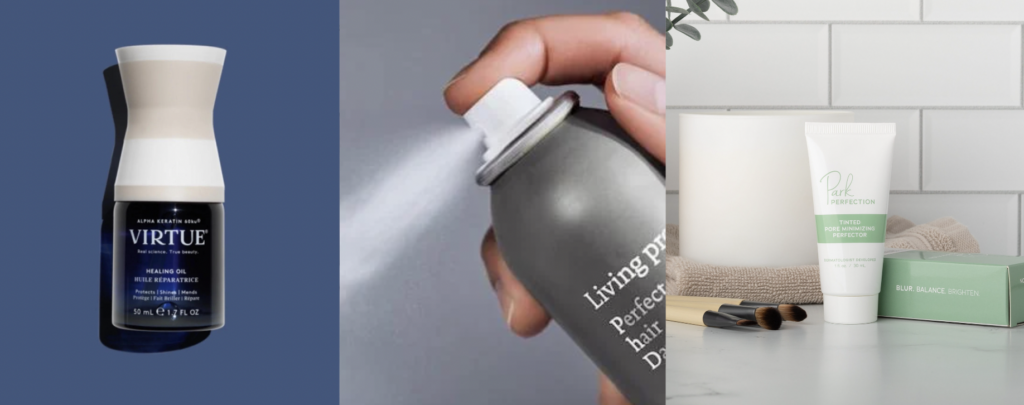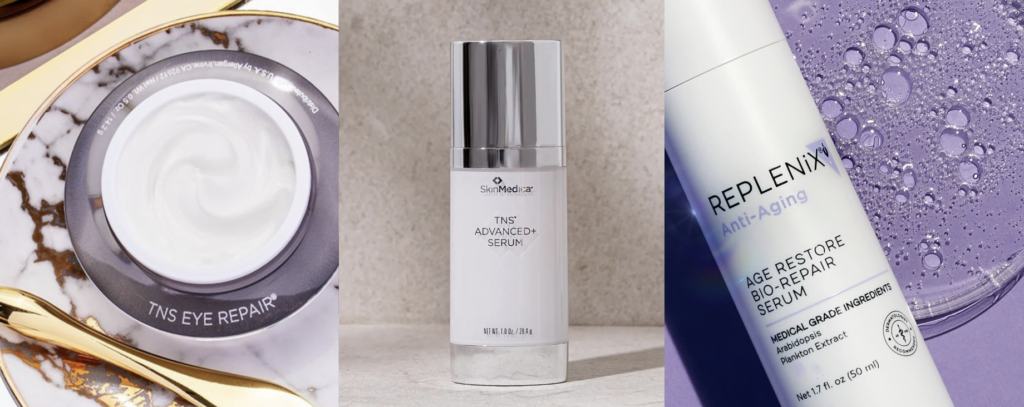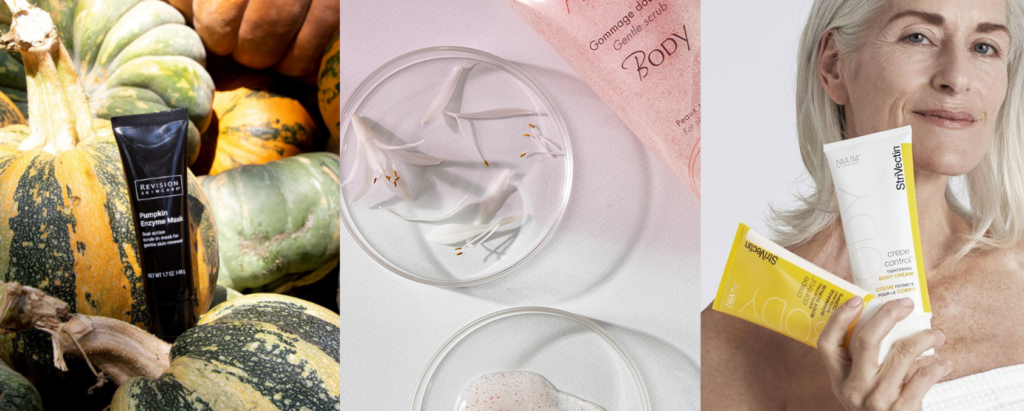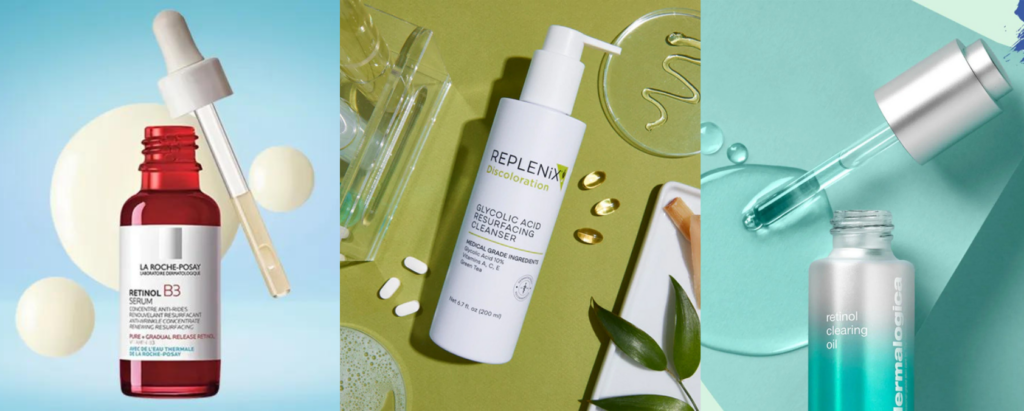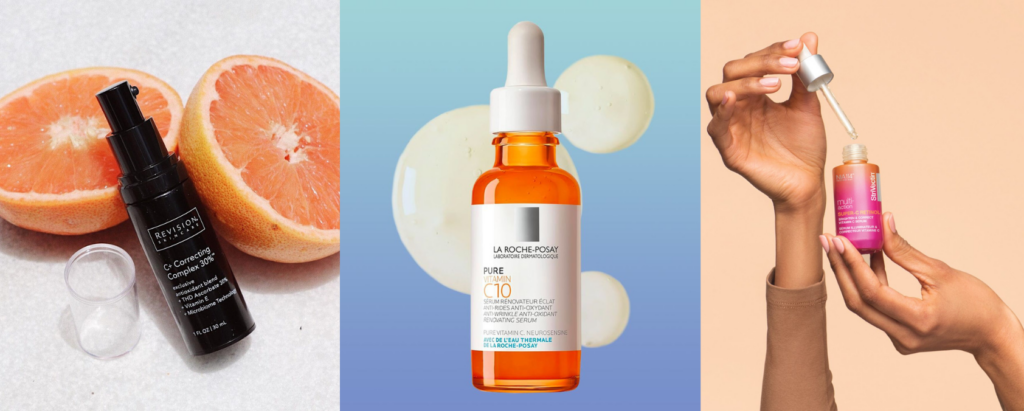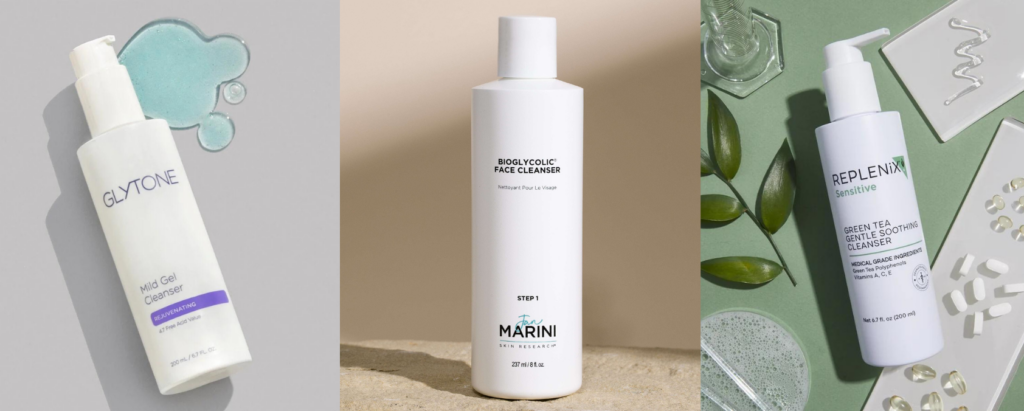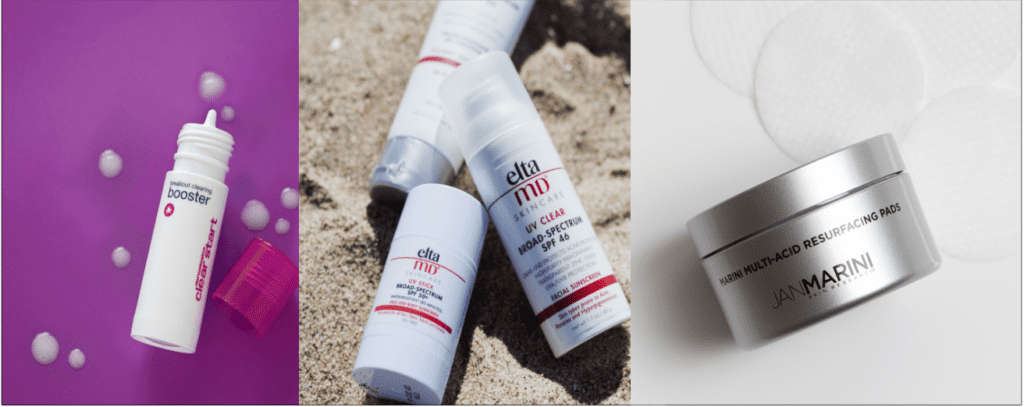Why Is My Skin Sensitive All of a Sudden?
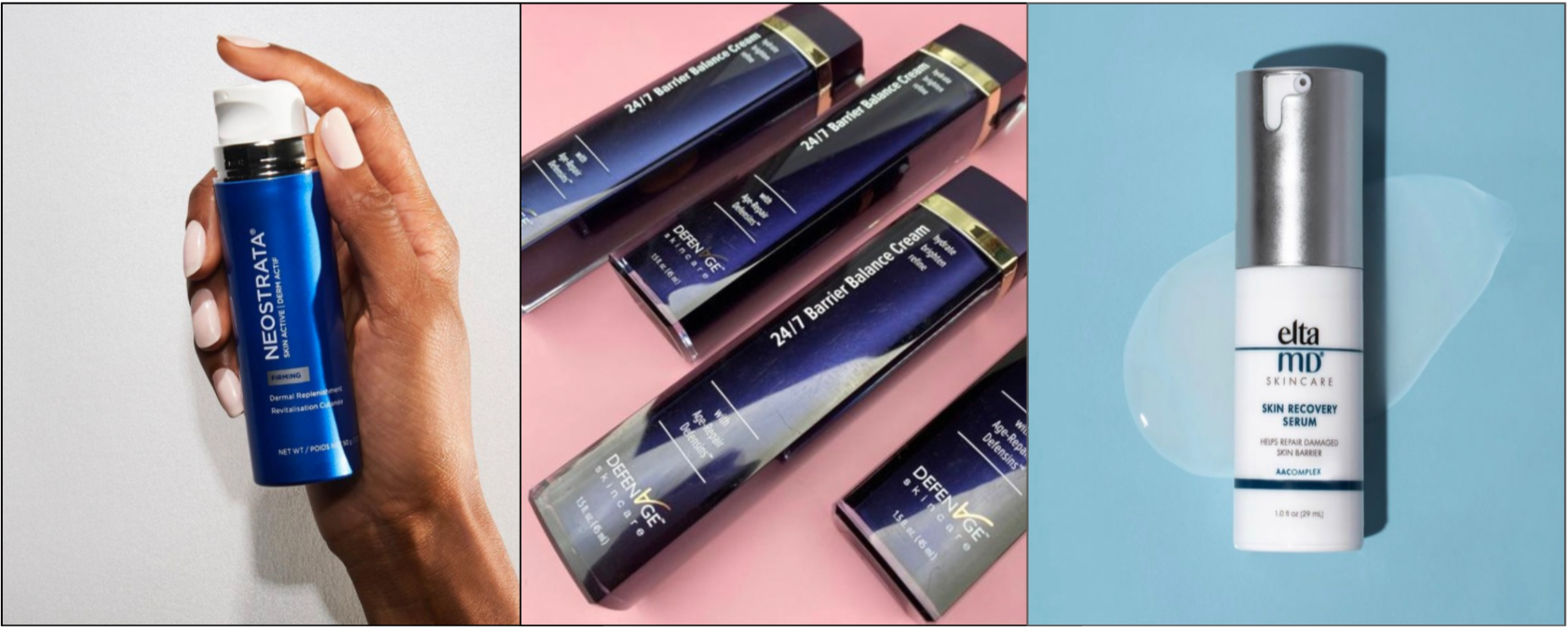
You might’ve had perfect skin your entire life- you avoided the teenage acne phase, started using anti-aging products early, and you wear sunscreen every day. Or maybe you had your fair share of acne and oiliness, but you finally got your skin to a good place. But then, all of a sudden, your skin starts to feel dry, itchy or irritated with your normal skincare routine. What does this indicate, and how can your skin become sensitive all of a sudden?
What are the signs of sensitive skin?
One of the first signs that your skin may be sensitive is redness. If you’re not used to your skin flaring up like a tomato after even the softest touch, your skin might be sensitive to a product you used, or your skin might be changing to become a little more sensitive. Along with redness, your skin might be more reactive than usual. This means that your skin might be triggered by things that it didn’t used to. It could be soaps, fragrances, or even the weather. Your skin might turn red or itchy when it reacts to something irritating. You’ll also likely notice itchiness or even flaking of the skin, along with overall dryness. Try not to give in to the scratching- it can damage your skin or make it worse!
What causes sensitive skin?
Your skin might have been sensitive for as long as you can remember, or it may have just changed all of a sudden. Either way, it’s frustrating, and it’s important to nail down what causes extra sensitivity in your skin so you know what to avoid. Many times, sensitive skin isn’t necessarily a diagnosed skin condition. Sensitive skin can be caused by a multitude of things:
Long-Term Sensitive Skin:
-
DRYNESS:
- It might be that your skin is just on the dryer side naturally, making it more susceptible to flaking, redness, or itchiness. If you have dry skin and are using products or ingredients that dry it out more, your skin might become reactive and sensitive. Check out this blog on how to determine your skin type and this blog on how to care for dry skin if you aren’t sure what to do!
-
DAMAGED SKIN BARRIER:
- Similar to dry skin, you might notice that your skin is feeling really inflamed, red, or itchy, and you might see a bunch of new breakouts appear. If you’ve been using strong ingredients like retinol or AHAs/BHAs too often or without moisture, you may have damaged your moisture barrier. Your moisture barrier consists of the top layer of your skin that helps protect it from the environment and other bacteria that can damage your skin. When too many harsh ingredients are used or your skin doesn’t get the moisture it needs, the top layer of your skin may be damaged and cause extra sensitivity. Learn more about your moisture barrier in our blog!
-
ECZEMA OR PSORIASIS:
- Eczema and psoriasis are actually categorized as skin conditions and will likely require help from your dermatologist to soothe your skin. Eczema affects your skin’s ability to protect itself from irritants, causing irritation and dryness. You’ll likely see dry, flaky, and even rough skin in patches where your eczema is flaring up. Psoriasis is considered an auto-immune condition, as it can be chronic and cause flare-ups at different times. You might see rough, flaky patches of skin, especially on your knees, elbows, and scalp. With either of these conditions, be sure that you’re moisturizing your skin consistently and seek help from a professional if needed! Check out this blog about eczema for more information and recommendations.
-
ROSACEA:
- Rosacea is another skin condition but is fairly common. It’s usually characterized by redness and flushing of the skin, and small bumps or pimples. It causes extreme sensitivity of the skin and requires a gentle skincare routine and plenty of moisture. It’s also recommended you speak with your dermatologist about treatment and serious irritation you may have.
Sudden Sensitive Skin:
-
SEASONS:
- Throughout the year, we experience changes in weather, climate, precipitation, and allergies. These changes can do a number on our skin, as we can struggle to adapt to these sudden changes that come on quickly. With especially cold weather, high allergy counts, or a sudden change in the climate you’re used to, your skin might be feeling unbalanced, leading to sudden sensitivity and irritation. Be sure you’re always wearing your sunscreen, and if allergens are high, it may be best to avoid a long outdoor hike until things balance out again.
-
AGE:
- As we age and go into different life stages, our skin can change along with us. The skin type you had as a teenager may not be the skin type you have now as a 30-something adult. It could be that you’re pregnant, going through menopause, or going through your menstrual cycle, and your skin might be feeling more sensitive than usual all of a sudden. You might simply just be aging and feeling your skin become drier and more sensitive. Make sure you’re keeping up a consistent skincare routine and wearing plenty of sunscreen to keep your skin as healthy as possible!
-
LIFESTYLE:
- You might be using more active ingredients than usual, spending a lot of time in the sun, traveling often, or skimping on your skincare routine. You might be under a lot of stress or trying out different skincare products. Whatever it may be, certain things we do in our life can affect our skin and cause sensitivity all of a sudden. If you’re starting to notice increased sensitivity or irritation, take a second to think about any changes in your life that might be affecting your skin and keep your skincare routine simple to help bring your skin back to balance.
How can I help my sensitive skin?
When it comes to sensitive skin, it’s important that you’re keeping your skincare routine simple and to be wary of the ingredients you’re using. If you’re having a flare-up of extremely sensitive skin, take out any harsh active ingredients from your skincare routine, like retinol, Vitamin C, or AHAs/BHAs. Keep it simple- use a gentle cleanser, moisturizer, and SPF until your skin starts to feel a bit more normal. If you suffer from consistently sensitive skin, look for products with the following ingredients to keep your skin healthy and balanced:
-
Ceramides:
- Ceramides are known and beloved for treating and healing sensitive, irritated skin. They lock moisture into your skin and help create a barrier to protect the skin from irritation. They help to repair and rebuild the skin’s moisture barrier and are an ideal ingredient for sensitive skin. A few of our favorite products with ceramides include the Elta MD Barrier Renewal Complex, the SkinMedica TNS Ceramide Cream, and the Peter Thomas Roth Water Drench Hyaluronic Cloud Cream Hydrating Moisturizer. All of these products contain ceramides and are great for hydrating and healing the skin.
-
Aloe Vera:
- Aloe vera is not only great for healing cuts or wounds you have on your body, but it’s also great for soothing and healing your skin. Its cooling properties help soothe itchiness, irritation, redness, and inflammation within the skin. Aloe absorbs quickly and is lightweight, so it can be great for oily skin without causing the appearance of excess oil. The Jan Marini Transformation Face Cream, the Dermalogica Calm Water Gel, and the DCL Ultra Comfort Cream all have aloe vera and are all great for soothing and calming sensitive skin.
-
Squalane:
- Usually found in an oil form, squalane is an effective hydrating and soothing ingredient for sensitive skin. It mimics your skin’s natural hydrating oils, helping to hold in moisture and keep the skin hydrated and healthy. It also has antioxidant properties, meaning that it helps protect the skin from the environment and helps it to heal. It’s ultra-hydrating and soothing, making it perfect for sensitive skin. Check out the ClarityRx Feel Better Hyaluronic Acid Moisturizing Cream, the Indie Lee Squalane Facial Oil, or the PCA Skin Silkcoat Balm to add squalane into your skincare routine and soothe your skin.
-
Shea Butter:
- It’s not only great for body lotions- shea butter is a great ingredient for soothing and calming sensitive, irritated skin. It has anti-inflammatory properties, helping to soothe inflammation and prevent future damage. It also acts as an emollient, hydrating and moisturizing the skin. It absorbs quickly and helps heal the skin quickly and without further sensitivity. To add shea butter into your routine, check out the DefenAge 24/7 Barrier Balance Cream, the Neostrata Dermal Replenishment, the La Roche Posay Lipikar Balm AP+, or the Neova DNA Total Repair.
Remember that with sensitive skin comes the need to be gentle and careful of your skin. Be sure you’re always wearing sunscreen and checking in with your dermatologist if needed!

